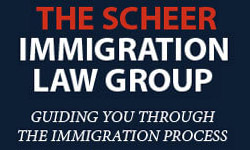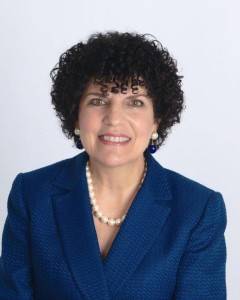Adjustment of Status for Nurses and Healthcare Professionals in New Jersey: EB-3 Cases
The journey to becoming a permanent resident in the United States is a significant undertaking, particularly for nurses and healthcare professionals. New Jersey, a state known for its robust healthcare system, offers numerous opportunities for those in the medical field to advance their careers and establish their lives. For many, the process of obtaining a green card through employment-based immigration, specifically under the EB-3 category, is a critical step. This pathway is designed for skilled workers, professionals, and other workers who meet specific criteria set by the U.S. Citizenship and Immigration Services (USCIS).
Understanding the process of adjustment of status, the criteria for eligibility, and the steps involved is essential for any nurse or healthcare professional aspiring to make New Jersey their permanent home. This intricate process requires a comprehensive understanding of immigration laws, employment requirements, and the various challenges that may arise along the way.
Understanding Adjustment of Status
Adjustment of status is a process that allows individuals already in the United States to apply for lawful permanent resident status without having to return to their home country to complete visa processing. For nurses and healthcare professionals in New Jersey, this process is particularly relevant under the EB-3 category. The EB-3 visa is an employment-based third preference visa that is available to professionals, skilled workers, and other workers who have a job offer from a U.S. employer.
Nurses and healthcare professionals typically fall under the “professional” or “skilled worker” category, depending on their qualifications and the nature of their job. The process begins with the U.S. employer filing a petition on behalf of the foreign national employee. This petition, known as Form I-140, Immigrant Petition for Alien Worker, must be approved by USCIS before the individual can apply for adjustment of status.
One of the key benefits of adjustment of status is that it allows nurses and healthcare professionals to continue working in the United States while their application is being processed. This is especially important in the healthcare sector, where there is often a high demand for qualified professionals. However, the process is not without its challenges. Delays in processing times, issues with the employer’s petition, or changes in employment can all impact the outcome of the application.
Eligibility Criteria for EB-3 Cases
To qualify for adjustment of status under the EB-3 category, nurses and healthcare professionals must meet certain eligibility criteria. These criteria are established by USCIS and are designed to ensure that only individuals who meet specific professional standards are granted permanent residency.
First, the individual must have a job offer from a U.S. employer. This job offer must be for a position that falls under the professional, skilled worker, or other worker category. For nurses, this typically means having a registered nurse (RN) license and a job offer from a healthcare facility in New Jersey. Healthcare professionals, such as physical therapists, occupational therapists, and other allied health professionals, must also have relevant qualifications and a job offer in their field.
Second, the employer must obtain a labor certification from the U.S. Department of Labor (DOL). This certification is a confirmation that there are no qualified U.S. workers available to fill the position and that the employment of a foreign worker will not negatively impact the wages and working conditions of U.S. workers. The labor certification process can be complex and time-consuming, as it requires the employer to demonstrate that they have conducted a thorough recruitment process and have been unable to find a qualified U.S. worker for the position.
Once the labor certification is obtained, the employer can file Form I-140 on behalf of the nurse or healthcare professional. This petition must be accompanied by evidence of the individual’s qualifications, such as educational degrees, professional licenses, and any relevant work experience. USCIS will review the petition to determine whether the individual meets the criteria for the EB-3 category.
After the Form I-140 petition is approved, the next step is for the nurse or healthcare professional to file Form I-485, Application to Register Permanent Residence or Adjust Status. This form is the formal application for a green card and requires the individual to provide detailed information about their background, employment history, and any previous immigration status. USCIS will conduct a thorough review of the application, including background checks and an interview, before making a decision.
Challenges and Considerations in EB-3 Cases
While the process of adjustment of status under the EB-3 category can lead to permanent residency, it is not without challenges. Nurses and healthcare professionals in New Jersey must navigate various legal and procedural hurdles to successfully obtain their green cards.
One of the primary challenges is the lengthy processing times. The demand for EB-3 visas often exceeds the annual quota, leading to significant backlogs. For some countries, such as the Philippines and India, the wait time can be several years. This can be particularly frustrating for nurses and healthcare professionals who are already working in the United States and contributing to the healthcare system.
Another challenge is maintaining employment throughout the process. The approval of the Form I-140 petition is tied to the specific job offer from the U.S. employer. If the nurse or healthcare professional changes employers or loses their job, it can jeopardize their application. In some cases, it may be possible to transfer the petition to a new employer, but this requires careful legal guidance and timely action.
Healthcare professionals must also be aware of the requirements for maintaining their professional licenses and certifications. Many healthcare professions in New Jersey have strict licensing requirements, and failure to maintain these can impact the individual’s eligibility for adjustment of status. For example, a nurse must maintain a valid RN license and meet continuing education requirements to remain eligible for employment in the state.
The impact of changes in immigration policy is another consideration. Immigration laws and regulations are subject to change, and shifts in policy can affect the availability of visas, processing times, and eligibility criteria. Nurses and healthcare professionals must stay informed about any changes that may impact their case and seek legal advice if necessary.
Attorney Susan W. Scheer attended Douglass College at Rutgers University and received her B.A. in 1974. She attended Georgetown University to get her M.A.T. in 1977 and went on to receive her J.D. from Georgetown as well in 1982. Susan is admitted to practice in New Jersey and before the United States Supreme Court.
Susan speaks Spanish, French, Hebrew, and Portuguese.
The Role of Legal Guidance in the Adjustment of Status Process
Given the complexities involved in the adjustment of status process, legal guidance is often crucial for nurses and healthcare professionals in New Jersey. Navigating the intricacies of immigration law, ensuring compliance with all requirements, and addressing any issues that arise during the process requires a deep understanding of the law and a strategic approach.
Legal professionals who focus on immigration law can provide valuable assistance in preparing and filing the necessary petitions and applications. They can help ensure that all documentation is accurate and complete, reducing the risk of delays or denials. They can also represent clients in case of any challenges or complications, such as issues with labor certification, changes in employment, or requests for additional evidence from USCIS.
Additionally, legal guidance can be essential in understanding the implications of changing immigration policies. With the landscape of U.S. immigration law constantly evolving, having knowledgeable legal support can help nurses and healthcare professionals navigate the process with confidence and minimize the risk of negative outcomes.
For nurses and healthcare professionals who are already working in New Jersey or planning to move to the state, legal guidance is not just a matter of convenience but a critical factor in successfully obtaining a green card. The process is rigorous and can be daunting without the support of an immigration law firm that understands the specific challenges faced by healthcare workers.
The Path to Permanent Residency
The adjustment of status process under the EB-3 category offers a life-changing opportunity for nurses and healthcare professionals in New Jersey. Obtaining a green card allows individuals to live and work in the United States permanently, providing stability and security for themselves and their families. It also opens the door to further career advancement, as permanent residents are not subject to the same restrictions as temporary visa holders.
For healthcare professionals, obtaining permanent residency can lead to greater job opportunities, higher wages, and the ability to pursue advanced certifications and specializations within their field. It also provides the freedom to change employers or start their own practice, without the constraints of a temporary work visa.
However, the path to permanent residency is not without its challenges. The process requires careful planning, attention to detail, and a thorough understanding of immigration law. Nurses and healthcare professionals must be prepared to navigate the complexities of the adjustment.
For those seeking to adjust their status under the EB-3 category, working with a dedicated and knowledgeable immigration law firm can make all the difference. The Scheer Immigration Law Group is committed to guiding nurses and healthcare professionals in New Jersey through the intricacies of the immigration process. With their support, you can confidently pursue your dream of permanent residency and build a brighter future in the United States. Contact The Scheer Immigration Law Group today to learn how they can assist you in your journey toward obtaining a green card.


 From the initial consultation to the successful resolution of my case, their commitment to excellence was evident. Scheer Immigration Law Group not only provided legal expertise but also exhibited a genuine concern for my well-being throughout the journey.
From the initial consultation to the successful resolution of my case, their commitment to excellence was evident. Scheer Immigration Law Group not only provided legal expertise but also exhibited a genuine concern for my well-being throughout the journey.





